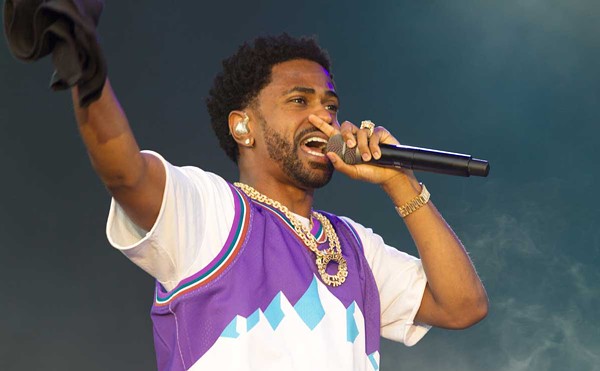"The most important thing is when the people feel it, that's what keeps me playing this crazy music," says bandleader Mario Grillo by telephone from New York. "If people don't feel the music, there isn't any point in playing it."
The Machito Orchestra, Diblo Dibala, Hamid Baroudi, Ulali and Mai Moua perform in the sixth annual Concert of Colors Sunday at Chene Park on the Detroit River.
Grillo, the son of Frank "Machito" Grillo and nephew of Mario Bauza, is keeper of the flame for the original Latin fusion music to sweep across America. It was in the late 1930s that the Cubans -- Machito, Bauza and arranger Alberto Iznaga -- had the dream to wed the rhythms of their homeland with the horn arrangements of the New York swing orchestras they worked in.
The visionary result led to a national cha-cha craze and an enduring stream of American pop culture. Even today, mainstream jazz musicians turn to the polyrhythmic challenge of the tropical stew after having mastered the straight-ahead beats of the traditional idiom.
"It's like Dizzy Gillespie and Charlie Parker were captivated," says Grillo. "A new generation of people like David Sanchez, Courtney Pine, Roy Hargrove and Wynton Marsalis are attracted to it in a big way. It's appealing because the Cuban rhythm is the root of it all."
In contrast to Machito's big band music, the soukous of Zairian guitarist Diblo Dibala and his band Matchatcha is like African acupuncture. The sharp, stinging notes from Dibala's guitar seem to prick the body with needlelike precision until the listener is forced to jump onto the dance floor in reaction to the music. It can be a healing experience and Dibala, in Africa a guitar superstar on par with Jimi Hendrix, is the doctor.
"Matchatcha is like when they put something on you and you start itching your body," says Dibala in materials circulated by his management. "And the music is going to make you itch like that."
While soukous, a popular West African style using electric guitars, and horn-heavy Latin jazz seem like disparate musics, they are united at their root: Afro-Cuban rhythm. For New Yorkers, it was the Cuban and Puerto Rican immigrants who brought their music with them while searching for a better life. The Afro-Cuban invasion of Africa started about the same time; Cuban sailors brought their music with them and the Africans felt a kindred spirit there. In fact, the Cuban rhythms were based on African rhythms and, in some cases, were more traditional than the contemporary African sounds. As in America, the Cuban sound spread across the African continent like wildfire.
"It's an absolute full circle," says Grillo. "I can take a drum and still be able to communicate, even though I don't speak the language. I've been in Africa a few times and I see exactly where our stuff came from."
These days the Cuban beat doesn't sound so exotic to American ears. The conga, bongos and timbales have become standard in our culture. It's not just that pop acts such as Gloria Estefan or Kid Creole and the Coconuts traffic in the Caribbean heat; the multi-percussion chatter is found on radio and TV commercials selling everything from cars to hamburgers.
"Now more so than ever, the integration is complete," says Grillo. "People are now exposed to it on a daily basis."
Unfortunately, that often means the rhythm is mixed down into a pabulum with no physical force -- something in the background of lowest-common-denominator music. But there is a saving grace. Bands like the Machito Orchestra and Machatcha play the music with a visceral dedication.
Yes, there was a time when Afro-Cuban music drew a shiver of excitement up young people's backs. When they danced the mambo on rubbery legs on hot summer nights. When lovers cooed and sighed with a Spanish accent.
That time is now. Larry Gabriel is a writer, musician and former Metro Times editor. Send comments to [email protected]






